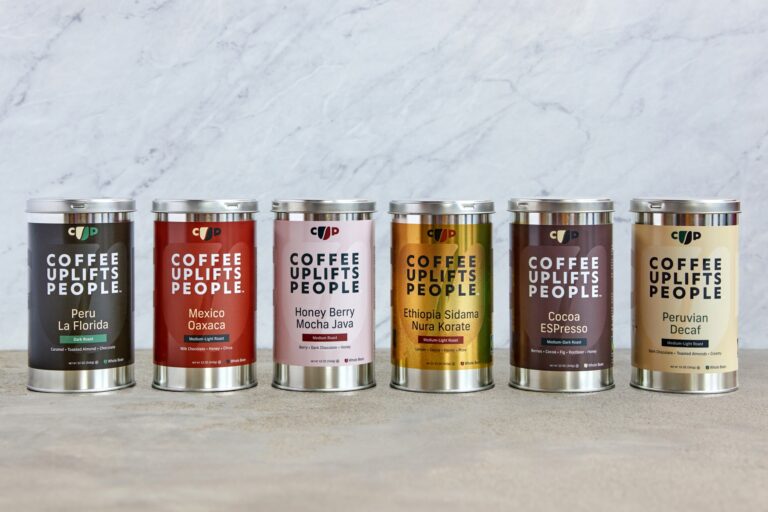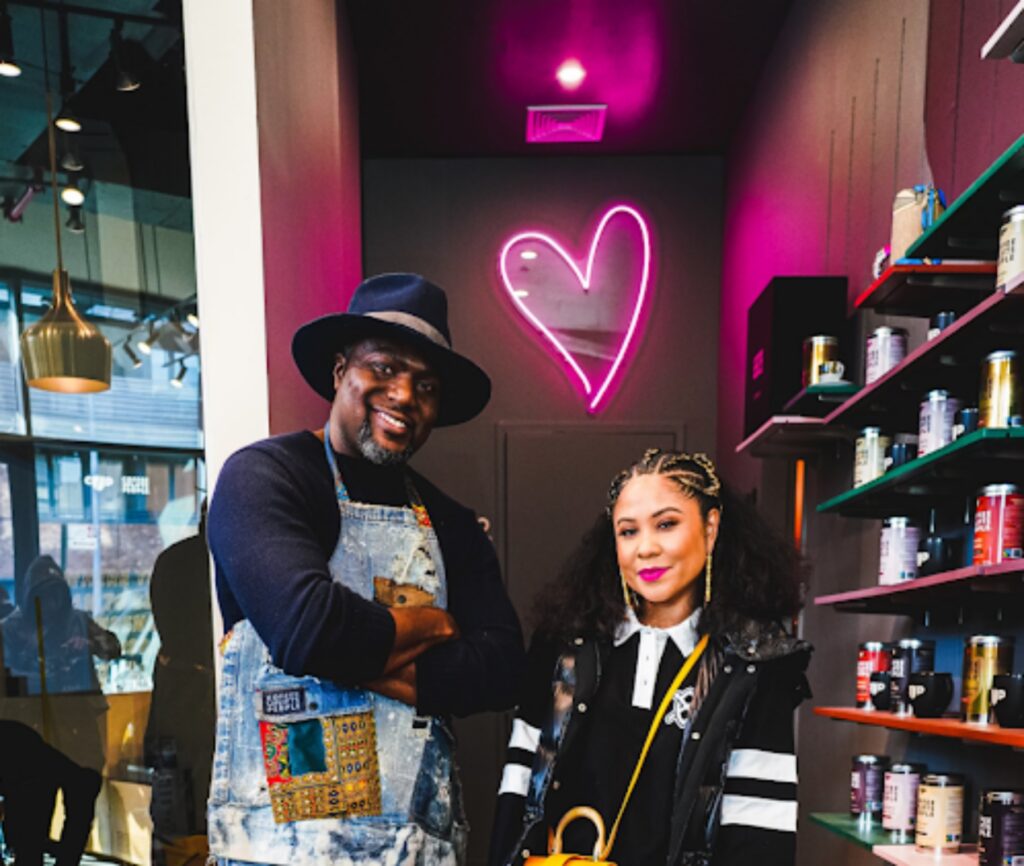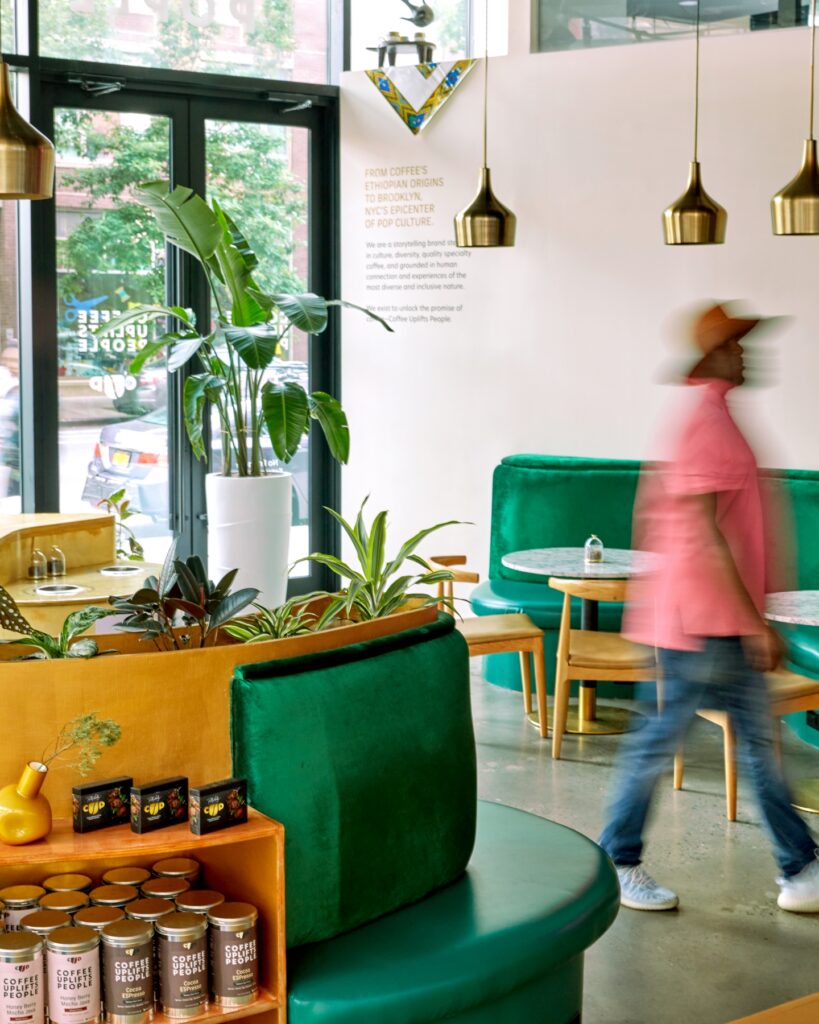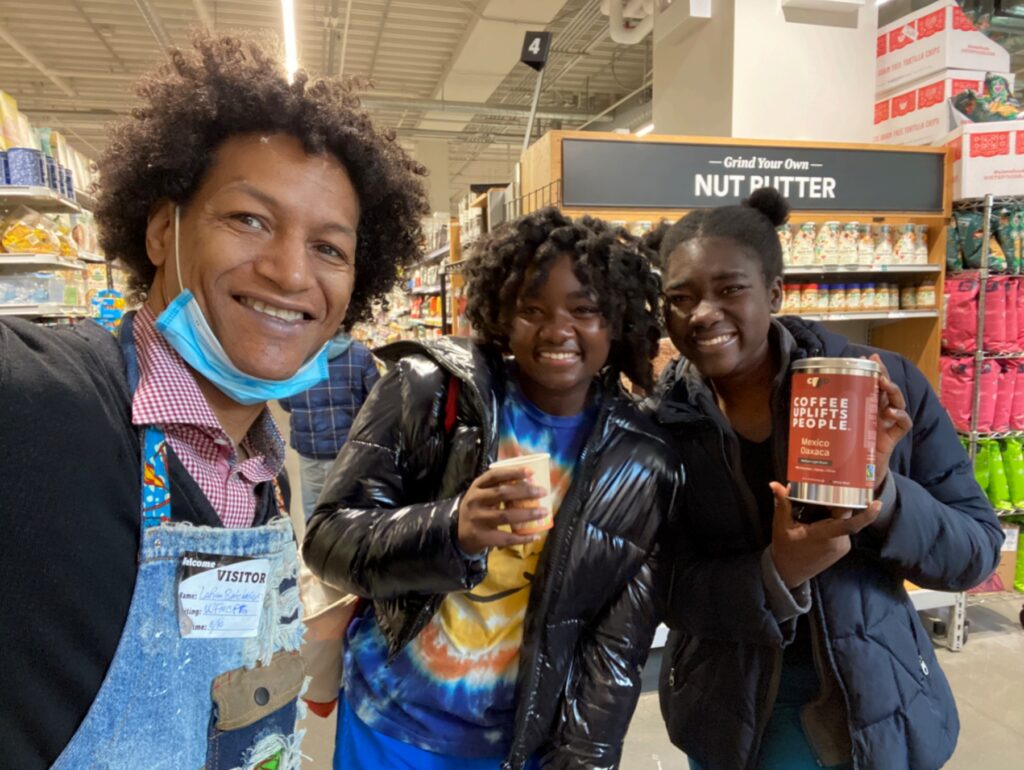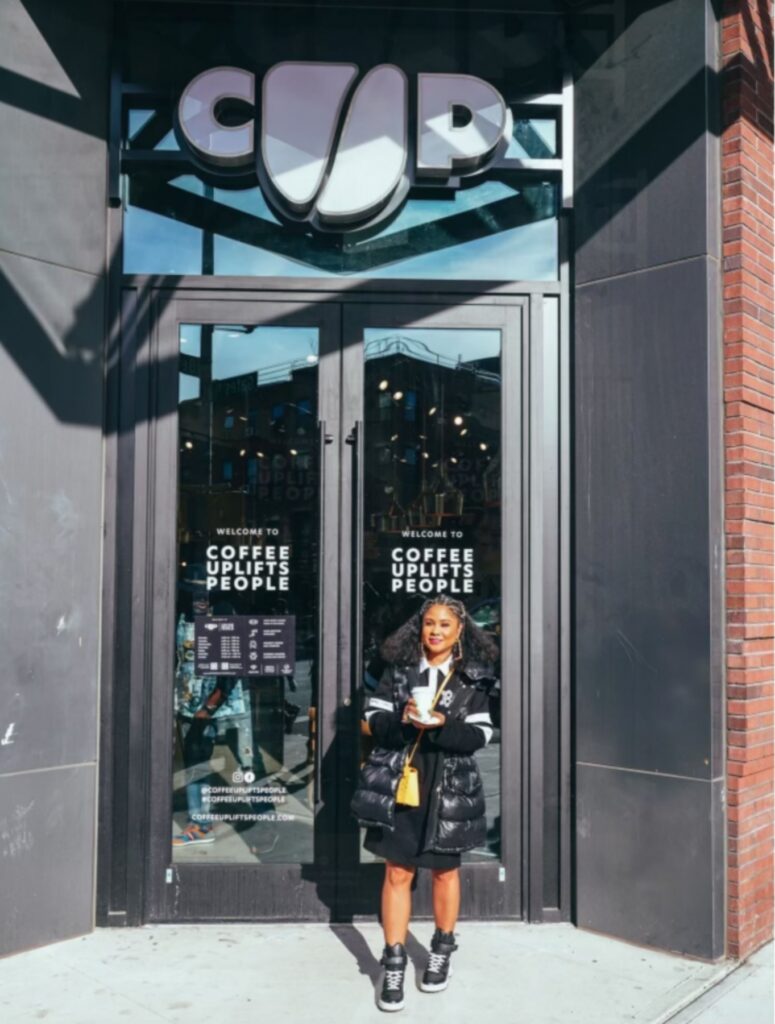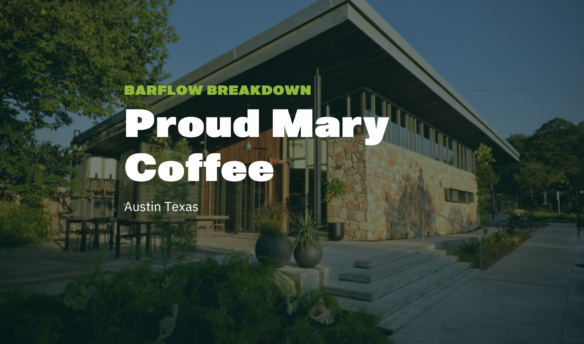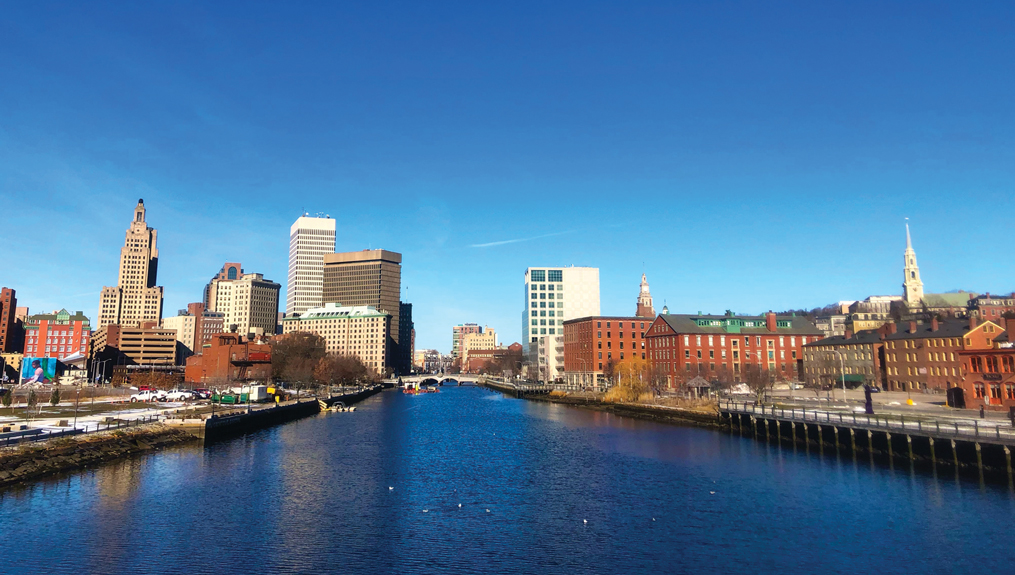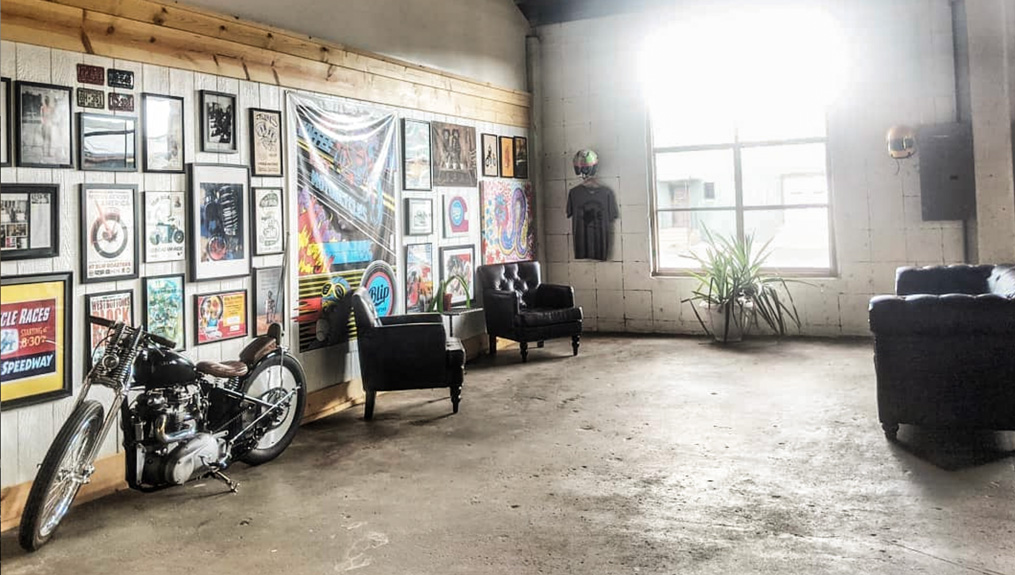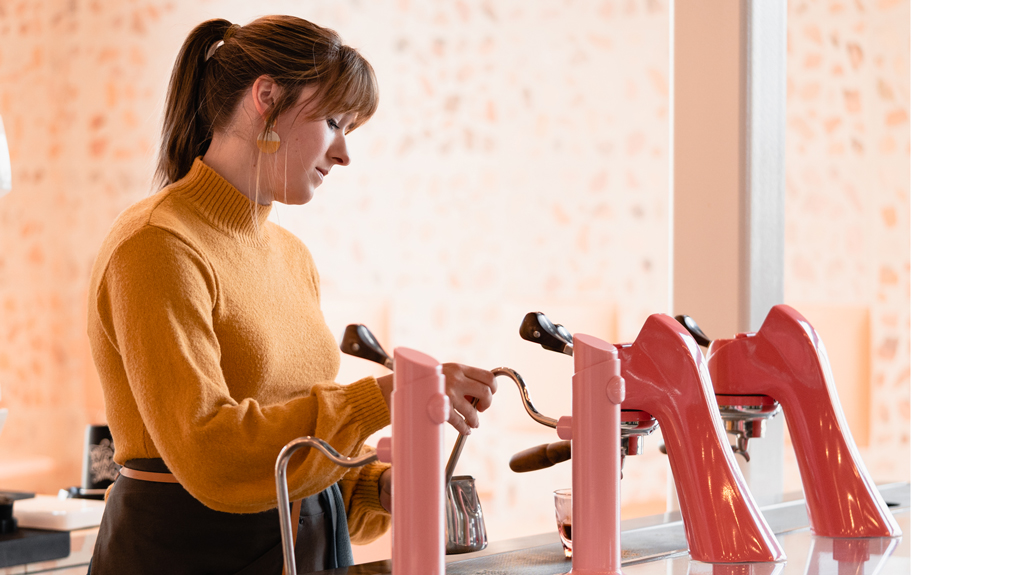According to a report published by The National Association of Coffee (NCA) in March 2022, 66% of Americans drank coffee in the past day. Americans consume approximately 517 million cups daily. 43% chose specialty coffee in the past day, up 20% since January 2021 and the highest level to date.
Coffee is clearly one of the world’s most popular drinks, but its ubiquity hasn’t touched every demographic equally. A previous NCA report, published in 2020, found that 48% of Black American respondents drank coffee the day before. This is a slight increase from 42% in 2018 but is still the lowest number in terms of consumption by ethnicity.
To compound the issue, Black Americans comprise a small percentage of the industry.
Against advice from friends, Angela Yee, LaRon Batchelor, and Tony Forte launched a coffee business called Coffee Uplifts People (CUP). Yee is a globally syndicated radio personality who already owns a business with Forte (Drink Fresh Juice), while Batchelor is CEO of Passport Food and Beverages and co-founder of Caminus Ventures. CUP is a coffee company looking to challenge how coffee is served through its physical location in the Bed-Stuy neighborhood of Brooklyn and e-commerce and wholesale channels. Together, the team at CUP hopes to bring coffee to a more diverse audience and make it accessible to all.
Born During a Time of Upheaval
The team at CUP is used to an uphill struggle—CUP joined the coffee industry in 2020 during the COVID-19 pandemic. Instead of workers leisurely strolling into cafes to get coffee, they were at home, making coffee for themselves and yelling “you’re on mute” to their colleagues on Zoom. “Having been birthed in the pandemic, we encountered unique challenges and opportunities unlike any other time, such as the significance of establishing a productive workspace that exemplified the new flexible working culture,” says Forte. “We knew a work-friendly coffee shop environment had to be one of [CUP’s] distinguishers.”
Thrust into the deep end during the early planning stages, CUP was burdened with unforeseen costs. “Another major influence of the pandemic was the shortage and excess cost of goods, supplies, and materials,” says Forte. “This influenced every area of our business, most obviously the cost of green coffee nearly doubling from where it was in 2020. Inflation [costs] also showed up in supplies and materials for building our shops, the shortage of tins available for coffee, grocery, and e-commerce.”
But for this majority Black-owned brand, the timing of their launch had a more sobering effect for socio-political reasons than economic ones. “The pandemic, along with the murder of George Floyd, ushered in an era of consumer purchasing discretion unlike any era before it and rightfully so,” Forte says. “The pandemic’s influence cannot be overstated; it made us more resilient, nimble, crafty, and confident that CUP’s unique voice is needed and welcomed in the industry.”
Forte cautiously welcomes the socio-political changes he’s seen over the last few years. He feels that for too long, women, members of the LGBTQIA+ community, and people of color (POC) have been excluded from the industry and exploited by it. “Where systems are designed and constructed for the unbalanced benefit for some at the expense of others, we’re all for real progress,” he says. “But the same energy taken to create such an unbalanced system should be spent correcting it.”
New Name, New Energy
Initially, the trio called their new coffee brand “Coffee Unites People” and started as an online coffee business, selling retail bags of beans as they planned to open their brick-and-mortar location in Brooklyn. But they rebranded early to expand their focus: “As a conscious and social impact founded brand, we create opportunities to strengthen communities,” says Forte. “We wanted to create a brand that would instill confidence in communities, partners, and suppliers, providing incomparable intentionality to uplift all areas that our brand intersects with. We firmly believe that: Coffee = Our Industry, Uplifts = Our Impact, People = Our Focus.”
The idea of uplifting others is ingrained in the DNA of the brand. For example, CUP works with Brooklyn Roasting Company in a mutually-beneficial partnership that uplifts both brands: owner Jim Munson helped the group form their coffee business and give them insights, while the team behind CUP helped pull the struggling brand out of bankruptcy.
CUP is also about shaking up traditional ideas about how coffee is served and to who it is marketed. “We decided to launch CUP to extend the reach of coffee. Despite the saturation of coffee brands and shops, we feel there is a glaring void for inclusively progressive brands that embody a vibe rooted in lifestyle, contemporary design, and immersive culture,” says Forte. “We are a storytelling brand with a unique voice.”
Before opening its brick-and-mortar location in November 2021, CUP looked for opportunities to get the brand out to consumers in a way that aligned with the team’s values. They brought their message to community gatherings like voter registration drives. They also put together what they call “pop-uplifts,” or community-focused pop-up experiences which featured other minority-owned vendors, including Island Pops, The Crabby Shack, and Flatbush Granola Company. The pop-uplifts help connect local businesses and use CUP’s social reach and media network to build community.
Taste the Difference
CUP speaks directly to the 48% of coffee drinkers that the NCA report highlighted through marketing via channels like advertising on The Breakfast Club Power 105.1 FM and Ebony Magazine. “CUP attracts Black American beverage drinkers by authentically being a brand of high-quality coffee with a cultural sensitivity that addresses the voids of the coffee industry,” says Forte.
Authenticity is key for CUP in amplifying its cultural perspective. They work with local vendors who exemplify their values and communicate their affinity with their target market at every opportunity. “We unabashedly infuse premium global culture into every aspect of our experience,” says Forte, “from store design (POC-owned service providers built 100% of our flagship store) to merchandise to suppliers (100% of our grab-and-go offerings…are supplied by POC-owned businesses).”
Forte and his co-owners infuse their heritage into their brand identity with the goal of increasing the number of POC coffee drinkers. “Our brand communication and social media unapologetically feature the cultural nuances and creativity that originate from Black culture,” says Forte. “We believe that the low consumption of coffee by Black Americans compared with other ethnicities has less to do with a distaste for coffee and more to do with lack of representation within the supply chain and coffee media communication, the checkered colonial history of coffee, and the cultural construct of coffee being less reflective of the lived Black American experience.”
CUP is rooted in the future but remains acutely aware of coffee’s past. Equity and fair wages for farmers and laborers, along with the colonial history of coffee and slavery, remain vital issues that CUP hopes to engage with “by speaking transparently about the industry and embodying change,” says Forte. “Fortunately, the legacy of slavery is not the sum of the [coffee] industry. CUP exists to unlock coffee’s potential beyond its checkered history. We want to show that we are here, have been here, and will only grow in size and contribution to the future of coffee.”
Waking Up the Industry
CUP seeks to be a positive link between coffee’s past and present by marketing to an often ignored demographic. “A founding principle and guiding operational light is our Diversity, Inclusion, Representation, and Equity (DIRE) promise; the coffee industry needs DIRE change,” says Forte. “You can find DIRE stamped on all of our consumer products. We exhaust every effort to source excellence with a preference for POC and women-owned suppliers, importers, roasters, designers, and more.”
CUP creates opportunities within their shops for those who don’t know much about specialty coffee. “This is important as all too often the only way to get into specialty coffee is by having experience,” Forte explains. “We broaden our net to attract and welcome service connoisseurs and hospitality experts (this inevitably invites more POC into the industry) looking for an opportunity to learn and make their mark.”
CUP has also created strategic educational partnerships aimed at being more inclusive. “Our ‘Not Just Joe’ initiative aims to welcome women and POC as interns to learn and explore the coffee trade,” Forte says. “We do this by partnering with neighboring colleges and intern placement providers to attract women and POC to learn more about ‘Joe’ and not be just your ‘Average Joe,’ both colloquialisms that often fail to include women and POC.”
The founders of CUP aim to open two more shops in Brooklyn in 2022 and start franchising in 2023. “Delivering on our values and quality while growing the CUP brand into a major player in the industry while preserving majority Black ownership will go a long way to show what is possible.” CUP has addressed a critical gap in the market. Welcome the new narrator to the story of coffee.
Fiona McKinson is a freelance journalist. Photos courtesy of CUP.



